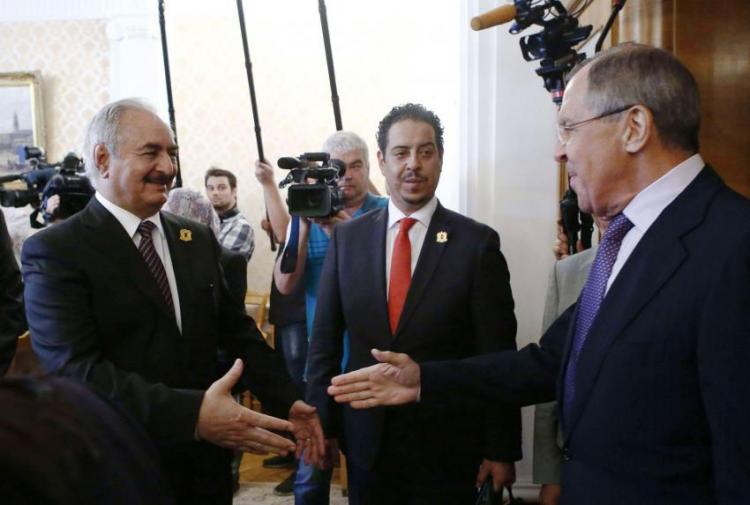North-Press Agency
The Libyan case is witnessing successive developments, the most prominent of which are leaks about Russia's use of warplanes to support the forces of General Khalifa Haftar against Turkish-backed forces represented by the Government of National Accord (GNA) headed by Fayez al-Sarraj.
The US military command in Africa AFRICOM observed Moscow sending military vehicles to Libya to support Russian fighters fighting alongside Haftar.
AFRICOM mentioned in a statement a few days ago that Russian vehicles left a Russian base, first stopping in the Syrian Hmeimim base, before heading to Libya.
Observers considered that the leaks of the arrival of Russian military vehicles to Libya may lead to another challenge, especially between Russia and Turkey.
Proxy wars
Russian affairs researcher Samer Elias told North-Press that the proxy war between Russia and Turkey in Syria has moved to the Libyan arena, and a great expected impact may occur between the two sides in Libya as each of them supports two different parties in this battle.
Elias added that until now, Russian support has not greatly affected the progress of the Turkish-backed Government of National Accord, amid a clear retreat of Haftar’s forces backed by Russia and Egypt.
Elias pointed out that "the developments could be through the use of Russian aircraft from Egyptian airports in the western region; there is a clear agreement between Russia and Egypt to allow Libya to use some airports in the western oases region, and from there it can target the military sites of the GNA to change the power balance on the ground.
Although Russia denied these leaks, last Wednesday deputy head of the International Affairs Committee of the Council of the Russian Federation Vladimir Jabarov stated that "these accusations are not true, and what is rumored is an attempt to defame Russia internationally." However, observers believe that the Russian presence in Libya, which is a worrying concern for Turkey, cannot be ignored.
Egyptian political researcher Mahmoud Abu Hosh told North-Press that "we cannot overlook the dense Russian presence in Libya, especially the presence of some Russian private companies like Wagner. This is a fundamental concern, whether for Turkey, whose presence was strengthened by armed militias, or the West.
Abu Hosh added that for Turkey, the Russian presence aims to create a Syrian scenario in Libya to harm Turkish interests in the Mediterranean as much as possible and to create political agreements between Moscow and Ankara.
He continued, “as for the West, French Minister of Foreign Affairs Jean-Yves Le Drian said on Wednesday, yesterday, that the situation in Libya is very worrying, and he warned of a repeat of the Syrian scenario. The concern of the West lies in the fear of Russian incursion into Libya, which weakens the western role as it does in Syria.”
Abu Hosh said that "the Russian role will change the balance of the battle in particular if the latter shows the fact that it sent these Russian planes to Libya.”
Abu Hosh added that the state of emergency that the Libyan National Army announced recently follows the progress made by the Turkish-backed GNA, but there is no doubt that the entry of Turkey to the GNA’s side changed the nature of the political and military equation in Libya. This may have pushed Haftar to gradually rely on Russian support."
Turkey is striving to fuel the ongoing conflict in Libya by sending mercenaries and providing flights for the groups fighting Haftar’s forces. This is all in pursuit of their economic and political interests and finding a foothold in Libya, similar to its military and economic presence in northern Syria, according to observers.

